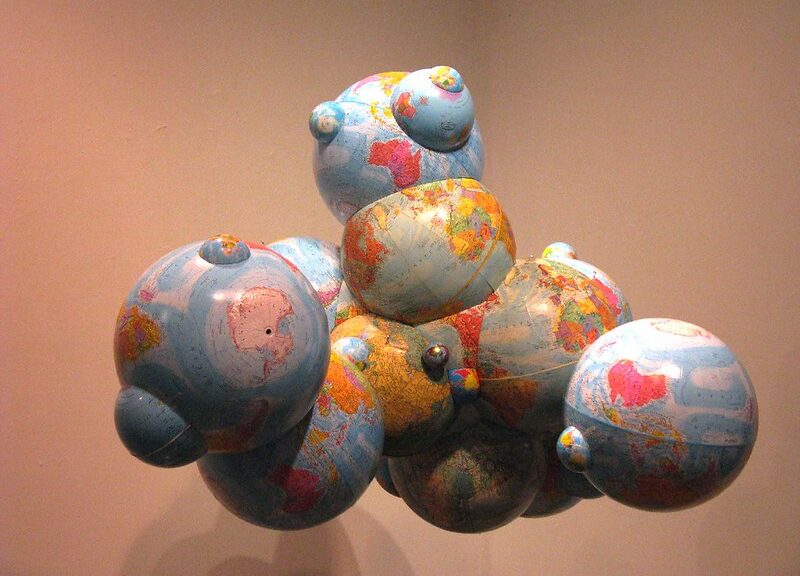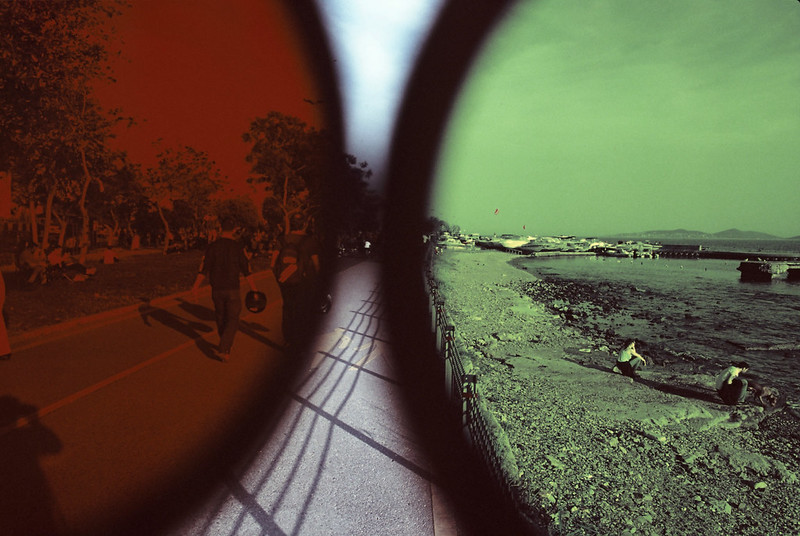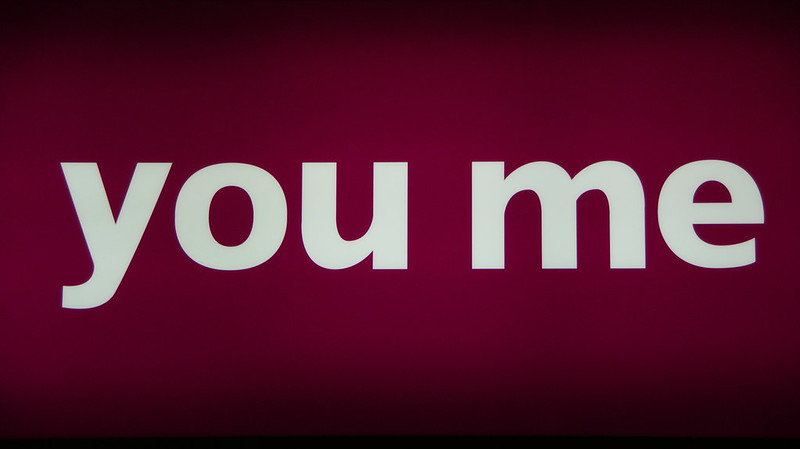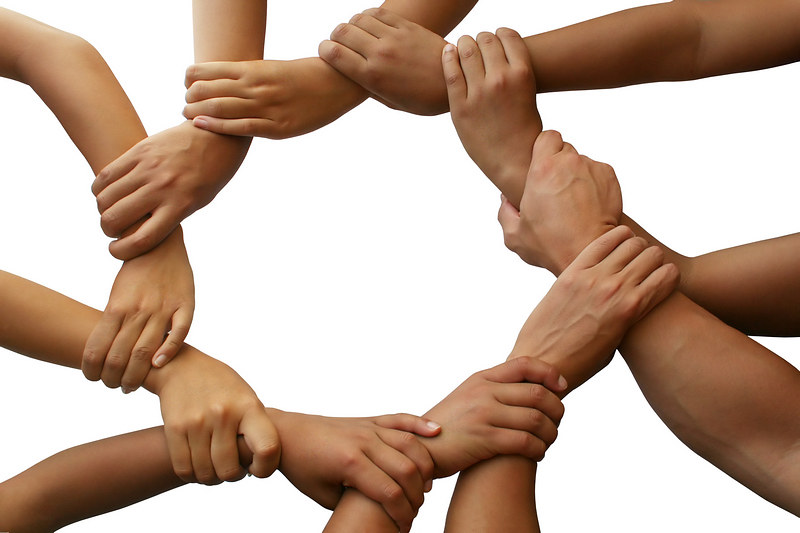
RULES OF THUMB FOR WHEN WORLDS COLLIDE
It’s likely that anyone who is serious about the art of investing money has at least looked at author Bud Labitan’s fan book, THE FOUR FILTERS INVENTION OF WARREN BUFFETT AND CHARLIE MUNGER, which first hit the bookstores in 2008.
It lays out the thinking processes these acclaimed money-meisters used to frame and make their financial decisions as they built fabulous fortunes for themselves and their clients.
These “filters” are the rules-of-thumb Buffet and Munger developed to help them make good decisions and appropriate moves by allowing them to winnow the grain out from the chaff in the investment options they faced. (They sure made good bread that way!)

The most important take-away from the book for me is the one about the value of developing a particular set of filters or rules-of-thumb that define what you are looking for as an end result in complicated situations that are likely to recur in your life.

THE DARK SIDE OF FILTERS
Other books about filters and similar heuristics have surfaced over the years. The scariest one for me is Eli Pariser’s book, THE FILTER BUBBLE: What the Internet is Hiding From You. It was published in 2011.

Pariser lays out (and tries to tackle) the sociological nuances of the never-ending, overriding techy quest of online information and content providers and platforms to “personalize” the information we get whenever we go wandering around the Web
This is not necessarily a bad thing.
Using their little bots to track us in our wanderings through the vast Universe of the Web, the cyberwizards and online community managers build and develop algorithmic filters and such that whisk us off into our own customized, bespoken little worlds where we can find what they tout as answers to our very own heart’s desires.
It is sort of mind-boggling, actually. The Smarty Pants contingent turned the virtual Indra’s Web of Infinite Possibility into a universe of mirrors that reflect back the images of each of the individual pilgrims wandering through the thing.

In your customized, bespoken virtual world, you are confronted only with information that supports and resonates with your own mind-constructs.
This has the effect of validating your stance, whatever it is, which solidifies your mind constructs until they become your only “truths” and your real Real.
In the virtual universe where the information that individual users encounter gets run through assorted pre-set filtering algorithms, it gets a lot harder to stumble across thoughts that are different than the ones you are already thinking.
It may even get really hard to get past your previously-reached conclusions and formerly successful solutions to find other, maybe better, resolves to your complex life-problems.

Here are some questions to ponder:
- If you never rub up against ideas that are way different than the ones you habitually use, how does that affect your ability to expand your creativity?
- Does your ability to flex and improvise in new situations atrophy?
- And if you have few experiences with ideas that are not like your own, how are you ever going to deal with all those other people who act and look and think in ways that are not-like-you?
Hmmm….
WHEN WORLDS COLLIDE
In my analog life as a residential property manager, I have to constantly deal with people who come to every situation and circumstance with their own mindsets (and their own personalized filters).
Often these differing mindsets may not mesh well. Very different mindsets do tend to collide.
The “gravity” a particular mindset generates can be huge in each person’s life.
When two big planets are moving through each other’s orbits there can be all kinds of very distressing results. The same thing can happen when two very different mindsets have a close encounter.

Basically, when things come to a head and start bubbling and boiling over, it is my job to figure out how to facilitate helping these battling world-makers build some bridges and doorways that allow them to come to some sort of a meeting of their minds.
One of my aims is to help them move on towards their own individual goals without making massive explosions all over the place.

- There is the Steam-Roller who firmly believes that forcing her way through every obstacle, clambering over every challenge and flattening the opposition will get her to where she wants to go. She’s having to deal with the Stoic who just as firmly believes that perseverance and enduring will get you past everything that comes at you.
- There was the Man of Reason who has been trying to deal with a contractor who is a Ball of Resentment making a much-needed repair to the house the Man of Reason owns. The results have been decidedly mixed.
- There are the Born-and-Bred Free Spirits trying to cope with a Suburbia Culture Code that is totally foreign to them and that keeps on blindsiding them with their neighbor’s unspoken rules and mores and norms and such that make absolutely no sense to the Freedom Runners.
- There is the Young and Clueless One who has been trying to deal with a massive mountain of stuff and issues that are a part of the legacy left behind by his hoarder dad. He has been failing miserably.
Let me tell ya, I could use some good filters and rules-of-thumb to deal with these sorts of circumstances.

A COUPLE OF ANCIENT RULES-OF-THUMB FROM THE WISE GUYS
It occurred to me that the ancients had to work on the very same issues that our naturally diverse human mindsets call up. Some of the best minds on the planet (then and now) continue to try to figure out ways and means to get around or under or over or through the dilemmas and challenges that arise.

The two most popular filters from ancient times that try to address the kinds of problems that arise when different mindsets bump into each other have gone through every kind of permutation, iteration and revision with a massive pileup of commentary besides.
One of the most enduring, it seems, is The Golden Rule: “Do unto others as you would have them do unto you.”

Some version of the Golden Rule can probably be found in almost every ethical tradition, according to Simon Blackburn, an academic philosopher who studies metaethics (the thought constructs that are the underpinnings of various systems of ethics).
It certainly is a good rule-of-thumb. The Golden Rule can and does engender all kinds of charitable efforts, good works, loving kindnesses, and sweetness-and-light blessed helpfulness on the part of the givers.

The actions taken by do-gooder people guided by the Golden Rule can be irritating, possibly noisome, and maybe even downright dangerous for the recipients of the (often unasked-for) “blessings” of these Gold-following sorts.
Some deep-thinking folks have pointed out that the Golden Rule, as scientist Carl Sagan observed, takes no account of very real human differences.
Maybe I don’t WANT to do what you think I should be doing to reach your sort of good life. Maybe I don’t think your good life looks so grand.

Is it so strange to imagine that a person might not really appreciate your heartful efforts on their behalf? Are they supposed to feel grateful to you for your doing something for them that they really didn’t want in the first place?
I did have to laugh when I came across a story about how one man’s hell might just be another man’s paradise. I found it in Eric Weiner’s book, THE GEOGRAPHY OF BLISS: One Grump’s Search for the Happiest Place in the World.
According to Weiner, when European missionaries first landed in Greenland several centuries ago, they offered the pagan natives the standard message: Convert and you get to go to Heaven. Don’t convert and you will be condemned to an eternity of Hell.
So, the curious natives asked, “What is this Hell like?”
“Oh, it’s very, very bad,” the missionaries told them. “It’s very hot…all the time.”
The Greenlanders looked around at the frozen Arctic tundra that was their home and thought on it some. They decided that maybe they would prefer Hell.
Hmmm….

Instead of looking at the good you can do for other people, you focus on the bad you can avoid doing to them.

He said that this one phrase was “the whole of Torah and the remainder is but commentary.”
The chief value of the Silver Rule, it seems to me, is that it tells you to stop and think before doing anything and to try to make sure you’re not making some situation or other worse for everybody involved.
While the Silver Rule is less likely to engender outpourings of burgeoning do-good efforts that the Golden Rule will, it does keep you from annoying folks and might keep you from doing them (or yourself) irreparable harm in the name of your kind of good.
There are, of course, other metallic rules. I’ve run across the Bronze Rule, the Iron Rule, and the Platinum Rule in my perambulations. There’s even a Diamond Rule, and I suppose there are probably Rules that are named for assorted other minerals.
None of these have quite the same panache and patina of the Silver and the Gold, but neither of those ancient filters help me figure out what I am needing to do in the situations that I keep having to face as the middle person in a confrontation between adversarial mindsets.
AND THEN THERE IS THE GRACEFUL WAY
I do know that there is one other way of dealing with the conflicts and conundrums that arise out of the interactions of people with very different mindsets.

I’m not really sure it has a common name. I would call it “grace,” but that word has been effectively co-opted by evangelical Christians and I’m not sure they mean the same thing I do when I use the word.
- When I say “grace” I mean what the online dictionary defines as “simple elegance or refinement of movement.”
- When I say “grace” I mean the kind of “courteous goodwill” that respects the validity of another’s point of view.
- When I say “grace” I mean “a smooth and pleasing way of moving” and “a polite and thoughtful way of behaving.”

Somewhere, under all the details and hoo-hah, there is very often at least one set of appropriate actions that can help to allow a good resolve for everybody concerned.
The deal is, though, the actions you choose to make have to be well-executed in their proper time and place with firmly held goodwill towards everyone involved in the situation.
The most important thing to remember in all of this is that you’re just one element in the thing and maybe you can’t do a heck of a lot. It can get really frustrating.
The biggest problem with this way of walking is that it isn’t left-brained logical and it is a lot counterintuitive.
You can only find the appropriate actions to take if you can set aside your own notions and preconceptions of all of the differences between you and the other persons involved and focus instead on your commonalities.
Perhaps it is just another form of practicing the South African style of walking called Ubuntu – You are Me and I am You.

You are more than my brother, more than my sister. You ARE Me.
(I haven’t been able to get the moves right all the time yet, but I do keep trying.)

WHAT ABIDES
That things will change,
It is a given…
There is no argument:
ALL constructs WILL be riven.
Still and yet, the world
Keeps turning in its place.
Still and yet, there’s joy,
And rainbows and grace.
Change comes, change goes,
And so do you and I.
The thing we get to keep
Is the way we walk and fly.
By Netta Kanoho
Header Photo Credit: “When Worlds Collide: Spheres of Influence” by Matt via Flickr (art by Peter Thibeault) [CC BY-NC 2.0]
…….
SOME OTHER POSTS TO EXPLORE:
(Click on each of the post titles below and see where it takes you…)
- SONG OF PROTEST (Famous Are The Flowers)
- EMBRACE SHADOW (An Un-Seeing Exercise)
- TRANSMUTE THE ANGER TRIFECTA (Another IPS)
……
Thanks for your visit. I’d appreciate it if you would drop a note or comment below and tell me your thoughts.
12 thoughts on “RULES OF THUMB FOR WHEN WORLDS COLLIDE”
Some well-spoken truths here, and even though we are all so different and we all have to work so hard to get along and avoid drama, just imagine how boring the world would be if everyone was the same.
Some people thrive on drama, so they would be totally bored if there wasn’t an argument or disagreement to be had somewhere. And I suppose because we are all different in our own ways, we all have something special to contribute to the world to make it a better place, it is just that some of us have yet to discover what this is?
I am South African and I like the concept of Ubuntu, but sometimes it is challenging to see another’s point of view, and there are still many conflicts of interest in our country.
Thanks for your visit and for your well-considered thoughts, MIchel. I like your point that the world would be a very boring place if we were all just the same. Conflicts of interest and folks stepping on each others’ toes will probably always be a fact of human life, I suppose.
Probably, we’ll just keep trying to figure out how to get along. It is, after all, a survival trait of ours.
Please do come again….
Thank you for giving us your take on RULES OF THUMB FOR WHEN WORLDS COLLIDE.
Everyone thinks in their mind , they are going the right way. This only causes conflict and disagreement.
I agree that we should meet each other halfway and work together. A lot would be accomplished faster.
However people are greedy and always fight for power and control.
I’m glad you liked this post, Diana. I think that it’s helpful to remember that often the reason people are “greedy” and fight for power and control is more about their own insecurities in this confusing world we humans are making together. When people are off-balance, I am noticing, they tend to hold on hard to their own points of view and it’s really hard sometimes to get them to see things differently.
Thanks for sharing your thoughts.
Please do come again.
I thoroughly enjoyed reading this article and found it to be both informative and thought-provoking. The concept of using filters and rules-of-thumb to make sound financial decisions, as described in Bud Labitan’s book on Warren Buffett and Charlie Munger, is a valuable tool that can be applied to many aspects of life beyond investing.
These filters allow us to focus on what’s important and sift through the noise to make better decisions.
However, the article also touches on the potential downsides of filters when it comes to personalized online content. It’s easy to get stuck in a bubble of our own beliefs and opinions when we only consume information that supports our existing worldview. As the author suggests, this can limit our ability to think creatively and adapt to new situations.
Overall, I believe that the use of filters and rules-of-thumb can be a powerful tool for decision-making, but we must also be aware of their limitations and actively seek out diverse perspectives to avoid getting trapped in a bubble. By doing so, we can expand our minds and become more adaptable in a world where change is constant.
All the best,
Fred.
Fred, I do appreciate your visit. I’m especially pleased that the post sparked thoughts on the usefulness (and the downsides) of filters and rules-of-thumb and that you shared them.
Please do come again.
I am a great fan of Warren Buffet, but I was not aware of the fan book, “The Four Filters Invention of Warren Buffett and Charlie Munger by Bud Labitan. So it is interesting to see the filters and rules of thumb used by them. And then how it can be transposed onto other areas of life, not just when investmenting.
I very much live my life according to do unto others, but have not heard of the Silver Rule before. What a fascinating concept, that you avoid doing bad things to your fellow humans.
What a beautifully written post and a great reminder that we are all different, but we can live in harmony.
Thanks for stopping by, LineCowley.
I think Buffet and Munger invented the Four Filters thing. It’s why Labitan was such a fan.
(I know rules-of-thumb have been around ever since humans have had thumbs.)
I’m glad I could introduce you to the Silver Rule. I tend to use it my own self mostly because I’m never quite sure what other people like done to or for them, but I mostly do know what they don’t like. (People are so weird sometimes! Oh, well….)
Please do come again.
Hi I enjoyed reading your philosophical article about a code of conduct for life and various interpretations about it.
Every person on the planet is different in some way, and so there need to be differing categories so as to enable a better understanding by there group and an overall understanding about the possible range
Alan, thank you for your visit. Your comment is definitely a truth!
Please do come again.
What a thought-provoking piece! The exploration of filters for making financial decisions resonates deeply, and it’s fascinating how these principles can be applied to diverse situations.
The ancient rules-of-thumb, like the Golden and Silver Rules, highlighted here for managing conflicting mindsets, bring a whole new dimension to handling life’s challenges.
It’s intriguing to ponder the concept of “grace” as a way to transcend differences and create a smoother path for everyone involved. Will it be challenging to take these principles into the ever-evolving digital landscape of today?
Thanks for the visit, Aly. I like your thoughts and questions!
Please do come again….